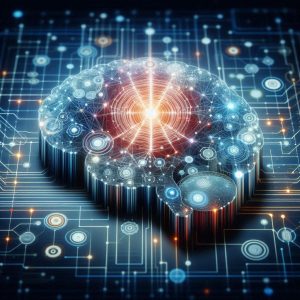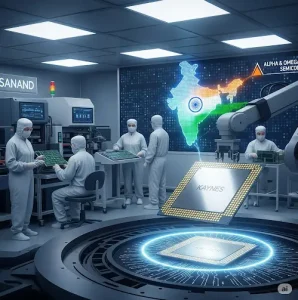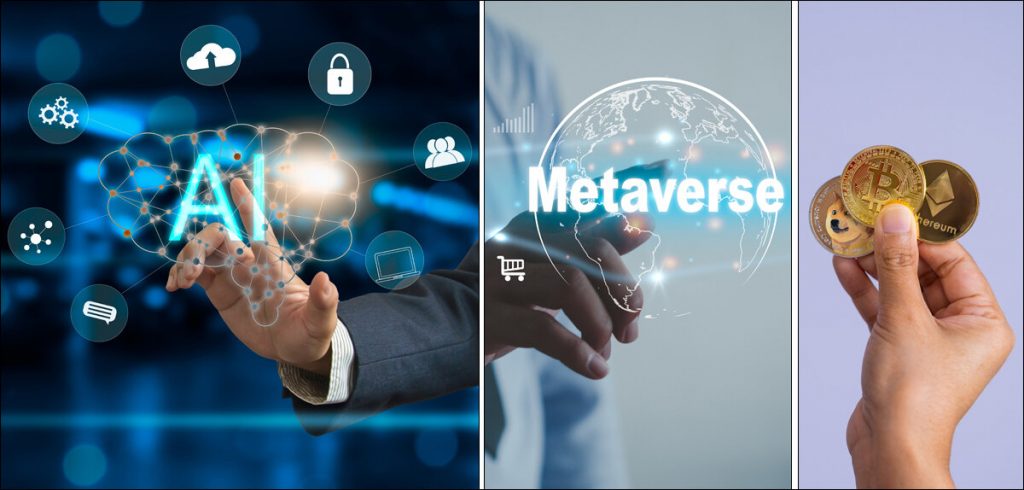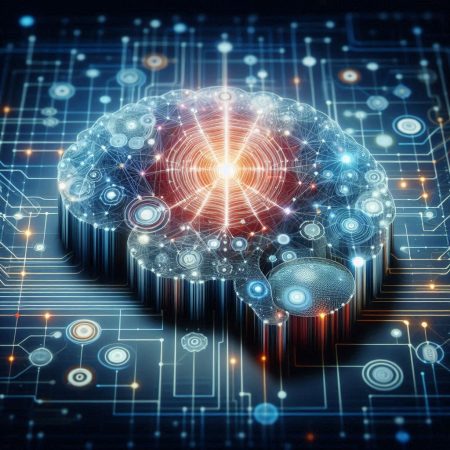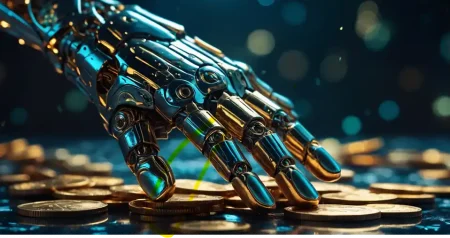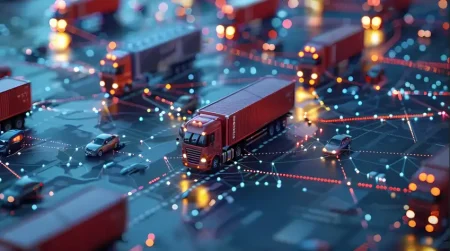Like AI today, Metaverse and Crypto were hyped a few years ago but didn’t live up to it. Satyen K. Bordoloi scrutinises AI to see if it has, or can.
Two years ago, buoyed on successfully defeating a pandemic, the world was riding high on two technologies: Metaverse and Cryptocurrencies. The number of online and offline publications dedicated to crypto had never been seen for any technology as every Tom, Wick and Sally claimed crypto would change the world. The Metaverse so enthused Facebook, that they renamed themselves Meta and have spent above $46 billion while generating just $6 billion.

Today, Meta, née Facebook, does not talk about the Metaverse at all while the biggest patrons of Crypto like Sam Bankman-Fried are either in jail, or on the run like Terraform Labs founder Do Kwon (detained for a year, but not arrested). Still another, Ruja Ignatova, disappeared from the face of the earth, taking billions of crypto investors’ monies with her.
It was also 2 years ago, that on the sidelines, the hype for another technology began – that of Artificial Intelligence riding on the back of Generative AI, starting first with DALL-E which was released to a million people in July 2022 and more importantly ChatGPT four months later. As crypto and metaverse have fallen out of favour, AI has taken its place. But will it go the way the other two have, or is it here to stay? We take a closer look.
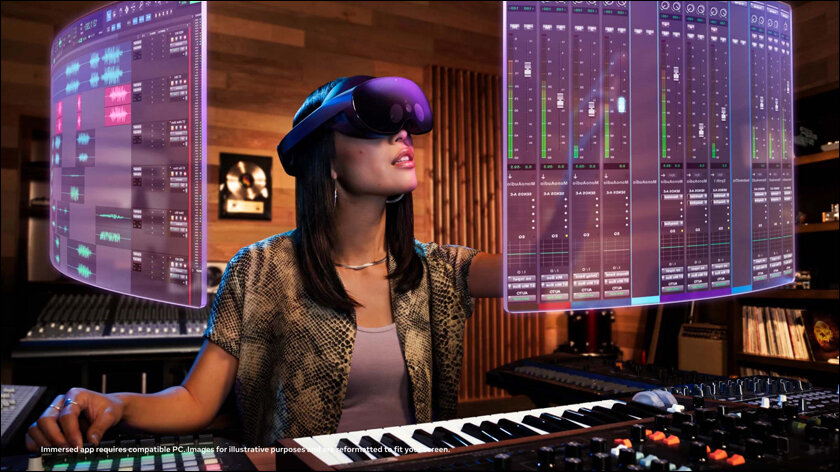
THE HYPE OF AI:
There is something different about the AI hype. Unlike Crypto and Metaverse, many look at the alphabets ‘A’ and ‘I’ as the ones to complete M_G_C to make MAGIC. AI, according to patrons, will magically solve the world’s problems. Detractors claim it will destroy the world. Both these points of view are extreme, intrinsically problematic, and show both opportunism and inability to understand AI as a technology.
Such is the hype that the US will war China over Taiwan just to protect chipmaker TSMC. The world’s most valuable company, worth more than any in the world recently and nearly the GDP of India, is NVIDIA because they make AI chips. Tiny Netherlands finds itself embroiled in international intrigue because it houses the company ASML – which makes the machines to make the chips that the US does not want to be sold to China.
Then there are school children who, instead of their parents, are asking ChatGPT to write their essays. Meanwhile, political actors create deepfakes against their rivals using AI.
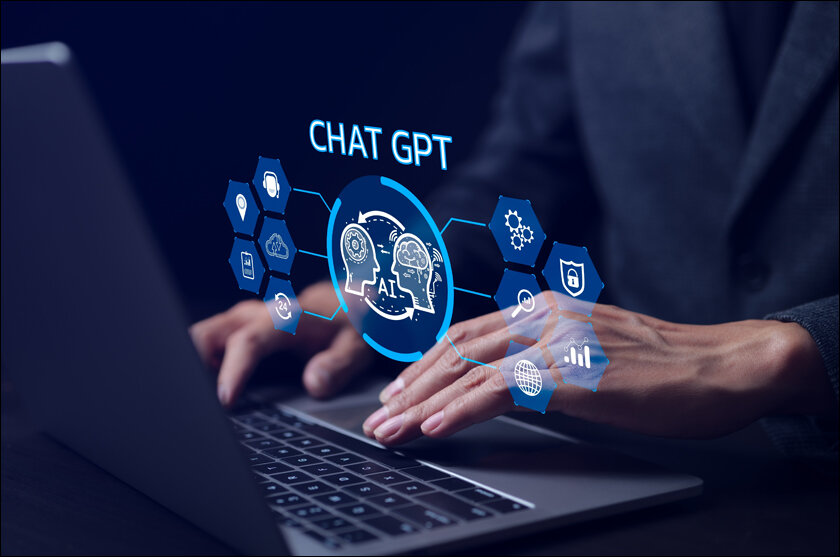
REALITY OF AI:
There’s another side to AI, though. It is pushing us into a crisis. AI needs massive training data, humongous computing power and endless electricity. While coding has become easy thanks to AI, training AI systems has not. The world is running out of data to train them, yet AI systems are not becoming smarter. NVIDIA is the world’s most valuable company because the AI boom has ensured the world can’t have enough of its chips. Then there’s the amount of energy it takes, to first train and then run AI. Because of the load on the system and power consumption, the AI SaaS providers and data centres also need a lot of energy to keep them cool. All this is adding to the woes of the planet growing more unstable due to climate change.
Yet, true it is that in under 2 years, generative AI has embedded itself so deeply into our world, that uprooting it is practically impossible. From Fortune 500 CEOs, to your local garage startup, from writing love poems to creating an image, the world has radically been altered, and spoilt, in the last 19 months since ChatGPT.
THE FUTURE OF AI:
AI, as many are realising, is neither about hype, nor magic. AI is the promise of automation that began with assembly lines over a century ago. Besides solving complex protein folding, AI is great for several mundane things; from giving you directions via map apps, to quickly drafting a reply based on prompts. From dumping unwanted emails into the junk folder and segregating the remaining to correcting your grammar. AI today has become indispensable for living life in 2024.
Companies, naturally, cannot simply ignore AI. Chatbots are the lowest-hanging fruit for consumer-facing companies. But, even others, are realising how useful a tool it is. The government of India is using AI to analyse tax data to catch evaders. Cops are using it in crime detection and analysis. ‘Algo trading’ has been a term in the stock market for years, and even artists are realising the power of AI to trigger creativity. Like the age of the internet and content boom meant that in a small way at least, every company became a content company, the AI boom ensures that every company, in a small or large way, is or will soon become an AI company. There’s just no workaround to that.
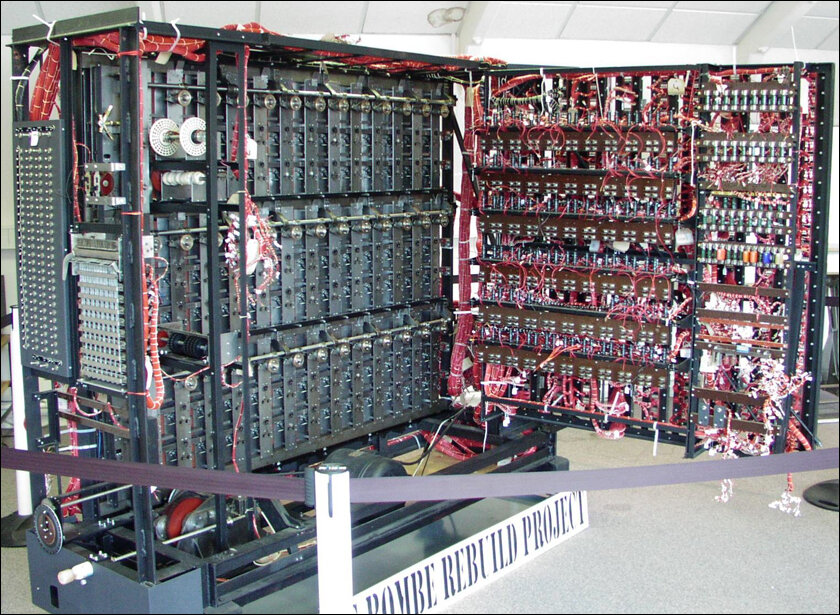
(Image Credit: Wikipedia)
LOOKING BEYOND THE HYPE:
The hype about AI today is reminiscent of the hype for computers beginning in the late 70s when personal computing first emerged. The hype did not die down as computing did not go the crypto or metaverse way. Instead, computing has become embedded in our lives. From a fully analogue world in the 70s to a fully digital one less than 50 years later, computing is indispensable for living. AI, in time, will settle down into a similar rhythm. The indispensability of AI will replace hype, and perhaps then, the realisation will finally enter a larger population that AI is not entirely separate, but the extension and expansion of computing, obvious since the core principles of both were laid down by the same man: Alan Turing.
The Turing test, metaphorically, is not for AI or robots. It signifies the time when humans will stop hyping AI, take for granted the productivity it promises, and live happily ever after. AI will live up to the hype, simply because AI will be in everything and everywhere, even crypto and metaverse.
Metaverse and Crypto were hypes before a larger world began using them. Conversely, most of us were already using AI via maps, spell checks, speech-to-text etc. before it was hyped. That is why AI will live up to the hoopla: by turning it into everyday, mundane reality.
In case you missed:
- AI Taken for Granted: Has the World Reached the Point of AI Fatigue?
- Kodak Moment: How Apple, Amazon, Meta, Microsoft Missed the AI Boat, Playing Catch-Up
- Microsoft’s Quantum Chip Majorana 1: Marketing Hype or Leap Forward?
- Why is OpenAI Getting into Chip Production? The Inside Scoop
- OpenAI’s Secret Project Strawberry Points to Last AI Hurdle: Reasoning
- Nuclear Power: Tech Giants’ Desperate Gamble for AI
- Google’s Willow Quantum Chip: Separating Reality from Hype
- The Great Data Famine: How AI Ate the Internet (And What’s Next)
- In Meta’s Automated Ad Creation Plan, A Fully Transformed Ad World
- Project Stargate: Dubious Origins in the 1970s to AI Goldrush in 2025
